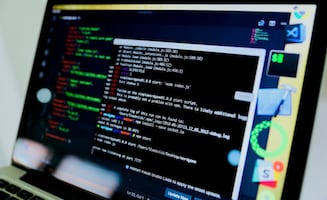Más Información

Caso Cecilia Monzón: Sentencian a 60 años de prisión a Javier López, por feminicidio de la activista; fue secretario de Gobierno en Puebla

Secretaría Anticorrupción detecta posible hackeo a bases de datos de instituciones públicas; abre investigaciones

FGR mantiene peritajes por descarrilamiento del Tren Interoceánico; recaba evidencia fotográfica y extrae caja negra

Tras descarrilamiento del Tren Interoceánico, autobuses dan servicio a turistas que ya tenían boleto

Rifas ilegales, posible causa del ataque a empresario del Mercado de Abastos en Zapopan: Secretario de Gobierno de Jalisco

Al menos 20 personas resultan lesionadas tras volcadura de vehículo de transporte público en Circuito Exterior Mexiquense
This year will be complicated in terms of cybersecurity due to next July’s presidential election and the complex relationship with the United States , said Diego Espetia , Telefónica's Chief Security Ambassador .
"Unmistakably, this year is expected to be very complicated for cybersecurity in Latin America , aside from the General Elections in Mexico , there will be elections in nearly 60% of the countries in the region ," Espetia assured.
Moreover, there is tension derived from the uncertainty over the future of the North American Free Trade Agreement ( NAFTA ) which most likely will produce vulnerability overall.
In a press conference, Espetia explained that last year, Mexico ranked as the second country in Latin America with the most cyber attacks , followed by Brazil .
"Mexico is the country with the most international connections in the region. The country has the strongest traffic channels and traffic bridges in Latin America meaning that it can be used as a platform to generate large-scale attacks ," explained the expert.
It should be noted that in Mexico people is far from using secure passwords let alone unbreakable ones, but rather there is a tendency to use "12345678," names of relatives or pets as passwords which make the users in the country prone to several types of cyber attacks.
"Thus the Internet of things (IoT) needs an ecosystem. People keep buying cameras, installing them at home and then forget about them. Plus, Mexico is a country where there is connectivity without controls," he added.
The Internet of things ( IoT ) is the network of physical devices, vehicles, home appliances, and other items embedded with electronics, software, sensors, actuators, and network connectivity which enables these objects to connect and exchange data.
IoTis expected to quadruple its value by going from USD$1 billion in 2016 to USD$4 billion in 2022 , according to Ignacio Perrone , Digital Transformation Industry Manager at Frost & Sullivan , a business consulting firm involved in market research and analysis, growth strategy consulting, and corporate training.
Noticias según tus intereses
[Publicidad]
[Publicidad]








